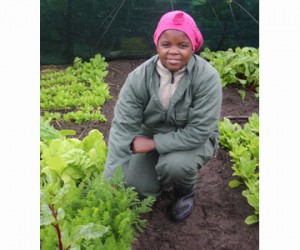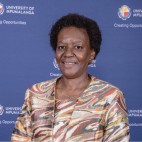A registered Section-21 Company (not for profit) established in 2005 in the Grootbos Nature Reserve, the foundation runs four projects that create nature-based lively hoods and promote conservation.
The green futures horticulture and life skills college
A year long practical training programme for local unemployed people in the fields of fynbos landscaping, horticulture and eco-tourism. The story of Green Futures is one of good news and hope in which unemployed people can find a new and exciting future in the field of fynbos landscaping and conservation. It all started as a dream of the Lutzeyer family, owners of Grootbos Private Nature Reserve, to train unskilled people from local communities and to find work for them in fynbos landscaping and horticulture. What started as a dream has become reality through a public/private partnership project between Grootbos and DEG (German Investment and Development company). The DEG agreed to support Grootbos on a rand-for-rand basis over a two-year period to establish the Green Futures college and training programme. The education centre has been built on Grootbos, a team of lecturers employed, a training curriculum developed and the first intake of twelve unemployed student’s chosen. The first year’s intake of eager ‘gardeners in the making’ began their training in June 2003.
The growing the futures project
A year long practical training program for local unemployed women in small scale farming and animal husbandry. Subsistence farming has always been integral to many of the South African cultures, but in recent years, as people have moved from rural areas to the cities in search of work, these skills have started to lapse. Subsistence farming has taken a backseat to the luxuries that can be attained with money. For this reason, Growing the Future has a commercial edge, showing how people can provide food as well as generate income. It is important to us that the women have some exposure to, and learn the principles behind successful business. This will form a large part of the life skills component of the course, which will also include computer literacy, health education, numeracy and English.
Skills Obtained
The skills that these women learn can be applied in many ways; on a small piece of land in the township, each could grow enough vegetables to feed her family; through some form of co-operative land use the graduates could grow produce on a commercial level.
For the students the course is fully subsidised – they receive transport, tools, uniforms and all their study materials, as well as a weekly stipend to cover their living costs. From the Grootbos Foundations point of view the project must be sustainable. They partly finance the project through the sale of the produce. This is a great way in which the students also contribute towards their education through their practical work.







